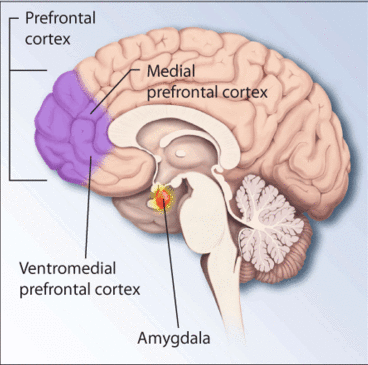Coping with Stress
Coping is the process of spending conscious effort and energy to solve personal and interpersonal problems. In the case of stress, coping mechanisms seek to master, minimize, or tolerate stress and stressors that occur in everyday life. These mechanisms are commonly called coping skills or coping strategies. All coping strategies have the adaptive goal of reducing or dealing with stress, but some strategies can actually be maladaptive (unhealthy) or merely ineffective. Maladaptive behaviors are those that inhibit a person’s ability to adjust to particular situations. This type of behavior is often used to reduce one’s anxiety, but the result is dysfunctional and non-productive. The term "coping" usually refers to dealing with the stress that comes after a stressor is presented, but many people also use proactive coping strategies to eliminate or avoid stressors before they occur. Personal choice in coping strategies is determined by personality traits and type, social context, and the nature of the stressor involved.
Coping Strategies
While psychologists disagree on the specific classification of the hundreds of coping strategies available today, distinctions are often made among various contrasting strategies. The three most common distinctions are appraisal-focused, problem-focused, and emotion-focused coping strategies.
Appraisal-Focused Strategies
Appraisal-focused strategies attempt to modify thought processes associated with stress. People alter the way they think about a problem by approaching it differently or altering their goals and values.
Problem-Focused Strategies
Problem-focused strategies aim to deal with the cause of the problem or stressor. People try to change or eliminate the source of stress by researching the problem and learning management skills to solve it.
Emotion-Focused Strategies
Emotion-focused strategies address the feelings associated with the stressor. People modify the emotions that accompany stress perception by releasing, distracting, or managing their mental state.
A typical person will employ a mixture of all of these strategies when attempting to cope with stress. Skill or prowess at employing these strategies changes over time.
Adaptive vs. Maladaptive Strategies
Coping strategies can also be positive (adaptive) or negative (maladaptive). Positive coping strategies successfully diminish the amount of stress being experienced and provide constructive feedback for the user. Examples of adaptive coping include seeking social support from others (social coping) and attempting to learn from the stressful experience (meaning-focused coping). Maintaining good physical and mental health, practicing relaxation techniques, and employing humor in difficult situations are other types of positive coping strategies. Proactive coping is a specific type of adaptive strategy that attempts to anticipate a problem before it begins and prepare a person to cope with the coming challenge.
Negative coping strategies might be successful at managing or abating stress, but the result is dysfunctional and non-productive. They provide a quick fix that interferes with the person's ability to break apart the association between the stressor and the symptoms of anxiety. Therefore, while these strategies provide short-term relief, they actually serve to maintain disorder. Maladaptive strategies include dissociation, sensitization, numbing out, anxious avoidance of a problem, and escape.
Coping Abilities
The capacity to tolerate or cope with stress varies among people. The root of stress is the cognitive appraisal of an event as stressful or stress-inducing. Primary appraisal is the extent to which a person perceives an event as benign or threatening and harmful. Secondary appraisal is the estimation of whether a person has the resources or abilities necessary to deal with what has already been deemed stressful. An individual can effectively cope with stressors by appraising stressful situations and having confidence in their ability handle situations that are stressful.

Brain regions associated with stress
The brain is a vital element in the experience of stress, because the mind must both perceive an event as a stressor and judge the ability to deal with that stress.
Variations in Coping Abilities
Coping ability and strategy selection vary depending on personality, gender, and culture. A person with a positive demeanor and outlook on life will perceive less stress and be better equipped to handle stress when it does arise. Those people who employ a static view of the world will perceive more stress and be less adept at addressing the stressor in their lives. Men and women also assess stress differently but tend to cope with stress similarly. Evidence shows that men more often develop career- or work-related stress, while women are more prone to stress about interpersonal relationships. The small amount of variation in coping-strategy selection shows that women will engage in more emotion-focused coping while men tend to use problem-focused strategies.
Culture and Coping Strategies
Culture and surroundings also affect what coping strategies are practically available and socially acceptable. Some cultures promote a head-on approach to stress and provide comforting environments for managing stressful situations, while others encourage independence and self-sufficiency when it comes to coping with stress. A person's perception of stress and ability to cope with that stress are products of many different influences in life.